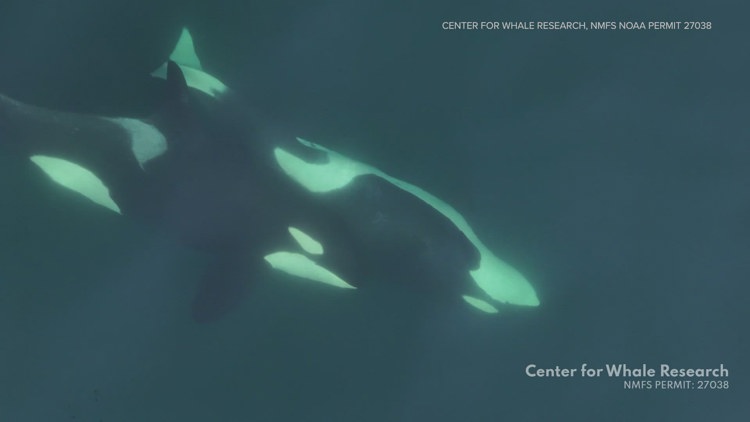In a groundbreaking observation, whales have been captured on video using kelp as tools to groom themselves and each other—the first known instance of such behavior among wild marine mammals, according to The Center for Whale Research. This discovery offers new insights into whale intelligence and social interactions, marking a significant milestone in marine biology.
Video, photos capture whales grooming themselves, and each other with kelp

Key Takeaways:
- Whales have been observed using kelp to groom themselves and others.
- This marks the first known case of wild marine mammals making tools.
- The behavior was documented through videos and photographs.
- Reported by The Center for Whale Research, lending credibility to the finding.
- The discovery has implications for understanding whale intelligence and social behavior.
A Groundbreaking Discovery
Whales have long fascinated scientists and the public alike with their complex behaviors and intelligence. In a remarkable turn of events, these majestic creatures have been observed using kelp as tools to groom themselves and each other. According to The Center for Whale Research, this is the first known case of wild marine mammals creating and using tools from objects in their environment.
Captured on Camera
This unprecedented behavior was documented through videos and photographs, offering tangible evidence of the whales’ innovative grooming techniques. The images reveal whales manipulating strands of kelp, using them to brush over their bodies and those of their companions. This not only showcases their ability to interact thoughtfully with their environment but also hints at sophisticated social dynamics.
Significance of Tool Use in Whales
Tool use has long been associated with higher cognitive functions in the animal kingdom. While primates and certain bird species are well-documented tool users, marine mammals have rarely exhibited such behaviors in the wild. “This is a significant advancement in our understanding of whale behavior,” stated a representative from The Center for Whale Research. The observation challenges previous notions about the intellectual capacities of these ocean dwellers.
Insights from The Center for Whale Research
The Center for Whale Research, renowned for its extensive studies on cetaceans, reported the finding with enthusiasm. “Observing whales using kelp as grooming tools opens new avenues for researching their cognitive abilities and social structures,” the center noted. The organization emphasized that such behaviors could indicate a level of problem-solving skills and cultural transmission previously unattributed to whales.
Implications for Marine Biology
This discovery holds profound implications for the field of marine biology. It suggests that whales may possess higher levels of intelligence and self-awareness than previously believed. The behavior could prompt a reevaluation of social interactions among whale populations and inspire further studies into their communication methods and learning processes.
Conclusion
The sight of whales elegantly using kelp to groom one another is more than a fascinating spectacle; it’s a window into the complex inner lives of these creatures. As researchers continue to delve into this phenomenon, we may uncover deeper insights into the cognitive world beneath the waves, reminding us of the rich and intricate tapestry of life that the oceans hold.











